
Alibi is a 1929 American pre-Code crime film directed by Roland West. The screenplay was written by West and C. Gardner Sullivan, who adapted the 1927 Broadway stage play, Nightstick, written by Elaine Sterne Carrington, J.C. Nugent, Elliott Nugent, and John Wray.

The Big House is a 1930 American pre-Code prison drama film directed by George Hill, released by Metro-Goldwyn-Mayer, and starring Chester Morris, Wallace Beery, Lewis Stone and Robert Montgomery. The story and dialogue were written by Frances Marion, who won the Academy Award for Best Writing Achievement. As one of the first prison movies, it inspired many others of this genre.

Execution by firing squad, in the past sometimes called fusillading, is a method of capital punishment, particularly common in the military and in times of war. Some reasons for its use are that firearms are usually readily available and a gunshot to a vital organ, such as the brain or heart, most often will kill relatively quickly.
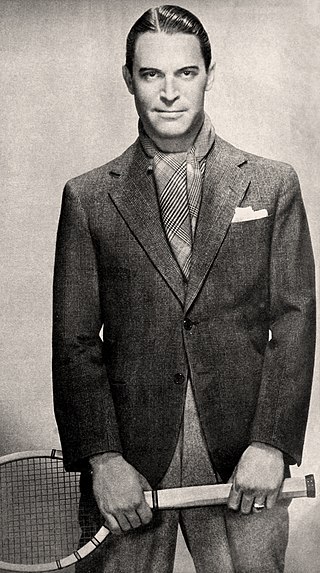
John Chester Brooks Morris was an American stage, film, television, and radio actor. He had some prestigious film roles early in his career, and received an Academy Award nomination for Alibi (1929). Chester Morris is remembered for portraying Boston Blackie, a criminal-turned-detective, in the Boston Blackie film series of the 1940s.
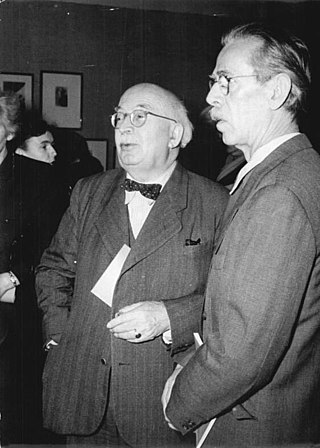
Arnold Zweig was a German writer, pacifist and socialist. He is best known for his six-part cycle on World War I.

Sahara is a 1943 American action war film directed by Zoltán Korda and starring Humphrey Bogart as an American tank commander in Libya who, along with a handful of Allied soldiers, tries to defend an isolated well with a limited supply of water from a German Afrika Korps battalion during the Western Desert Campaign of World War II.
Red Cherry is a 1995 film directed by Ye Ying. The Director of Photography was Zhang Li, a fifth generation filmmaker and classmate of Chen Kaige. Red Cherry won Best Picture at the 1996 Golden Rooster Awards.

The Case of Sergeant Grischa (1927) is a war novel by the German writer Arnold Zweig. Its original German title is Der Streit um den Sergeanten Grischa. It is part of Zweig's hexalogy Der große Krieg der weißen Männer. It was part of the so-called "war book boom" of the late 1920s, during which many veterans of the First World War turned their memories and experiences into semi-autobiographical novels. The first English edition was published in 1928.

During World War II, the German Wehrmacht committed systematic war crimes, including massacres, mass rape, looting, the exploitation of forced labor, the murder of three million Soviet prisoners of war, and participated in the extermination of Jews. While the Nazi Party's own SS forces was the organization most responsible for the genocidal killing of the Holocaust, the regular armed forces of the Wehrmacht committed many war crimes of their own, particularly on the Eastern Front in the war against the Soviet Union. According to a study by Alex J. Kay and David Stahel, the majority of the Wehrmacht soldiers deployed to the Soviet Union participated in war crimes.
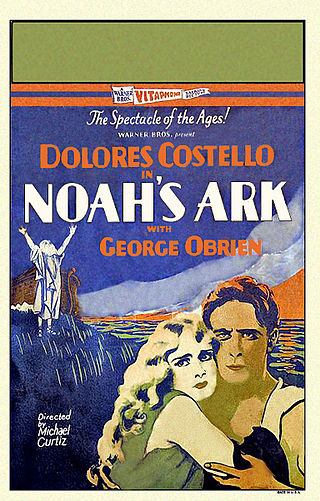
Noah's Ark is a 1928 American epic and disaster film directed by Michael Curtiz and starring Dolores Costello and George O'Brien. The story is by Darryl F. Zanuck. The film was released by the Warner Bros. studio. It is representative of the transition from silent movies to sound films, but it is essentially a hybrid film known as a part-talkie, which used the new Vitaphone sound-on-disc system. Most scenes are silent with a synchronized music score and sound effects, in particular the biblical ones, while some scenes have dialogue.

Gustav von Seyffertitz was a German film actor and director. He settled in the United States. He was born in Haimhausen, Bavaria, and died in Los Angeles, California, aged 81.
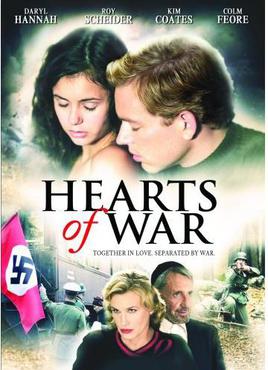
The Poet is a 2007 Canadian drama film starring Nina Dobrev, Colm Feore, Roy Scheider, Kim Coates and Daryl Hannah. It was written by Jack Crystal and directed by Damian Lee, with an estimated budget of CAD $11 million. It was released in the United States as Hearts of War.
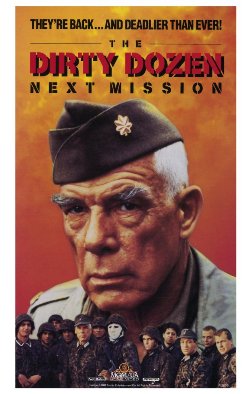
The Dirty Dozen: Next Mission is a 1985 made-for-TV film and sequel to the original 1967 film Dirty Dozen, directed by Andrew V. McLaglen and reuniting Lee Marvin, Ernest Borgnine and Richard Jaeckel 18 years after the original hit war film. Marvin returns to lead an all-new dirty dozen on a mission to assassinate an SS General played by Wolf Kahler.

The Leipzig war crimes trials were held in 1921 to try alleged German war criminals of the First World War before the German Reichsgericht in Leipzig, as part of the penalties imposed on the German government under the Treaty of Versailles. Twelve people were tried, and the proceedings were widely regarded at the time as a failure. In the longer term, they were seen by some as a significant step toward the introduction of a comprehensive system for the prosecution of international law violations.
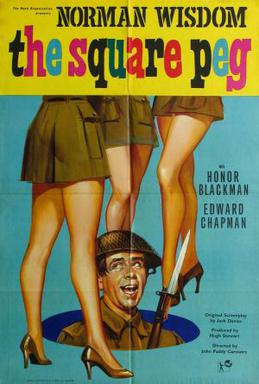
The Square Peg is a 1959 British war comedy film directed by John Paddy Carstairs and starring Norman Wisdom. Norman Wisdom plays two different characters: a man who digs and repairs roads, and a Nazi general.
John Tribby was an American sound engineer. He was nominated for an Academy Award in the category Sound Recording for the film The Case of Sergeant Grischa.
Russell Shoatz, also known as Maroon, was an American political activist and writer who was a founding member of the Black Unity Council, as well as a member of the Black Panther Party, and a soldier in the Black Liberation Army. In 1973, he was convicted in connection with the 1970 murder of Philadelphia (PA) police officer Frank Von Colln.
Leyland Hodgson, also known as Leland Hodgson, was an English-born American character actor of the 1930s and 1940s. Born in London on 5 October 1892, Hodgson entered the theatre in 1898. In his early 20s Hodgson was part of a touring theatre company, spending his time in the British areas of the Far East, before entering the stage in Australia. In 1930 moved to the United States, where he made his film debut in the Oscar-nominated film, The Case of Sergeant Grischa in 1930.

The Better 'Ole is a 1926 American silent World War I comedy drama film. Released by Warner Bros. Pictures, Inc., this film is the second full-length film to utilize the Vitaphone sound-on-disc process, two months after the first Vitaphone feature Don Juan; with no audible dialogue, the film does have a synchronized musical score and sound effects. This film was also the second onscreen adaptation of the 1917 musical The Better 'Ole by Bruce Bairnsfather and Arthur Elliot. Charlie Chaplin's eldest brother Sydney Chaplin played the main lead as Old Bill in perhaps his best-known film today. This film is also believed by many to have the first spoken word of dialog, "coffee", although there are those who disagree. At one point during the film, Harold Goodwin's character whispers a word to Sydney Chaplin which is also faintly heard.

Roses for the Prosecutor is a 1959 West German comedy film directed by Wolfgang Staudte and starring Martin Held, Walter Giller and Ingrid van Bergen. It was one of the few German movies of the 1950s which openly addressed the German Nazi era.
















